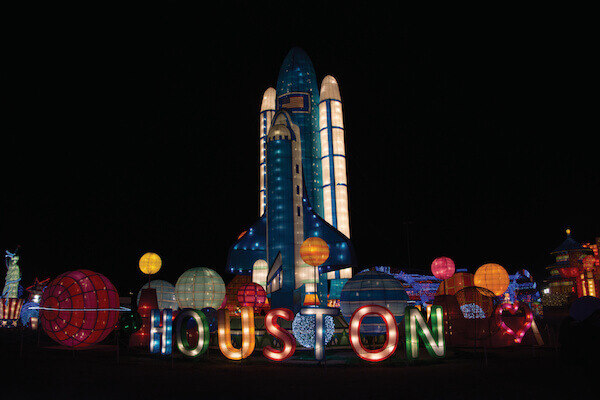The solar eclipse of 2017 was a landmark in many ways. A total solar eclipse visible within a band that spanned the entire contiguous United States, it was viewed by tens of millions of people throughout the country. Fueled by social media, the solar eclipse was one of those moments that brought people from all backgrounds together to marvel at the heavens.
The celestial event also solidified a growing trend in the travel sphere: Astrotourism. From stargazing and northern lights, to chasing astronomical events and full moon hikes, travelers are increasingly interested in “celestial” experiences. And they’re willing to plan entire vacations around them. Experts reported that more than seven million people traveled to view the eclipse; The Atlantic called it “ the greatest temporary mass migration of humans to see a natural event in U.S. history.”
Now, Astrotourism is hot – especially with celebrations for the 50 th anniversary of the moon landing this July when Neil Armstong, Buzz Aldrin and the rest of the Apollo 11 crew made history for all of mankind. Here’s a few key things to know. 
Who Are Astrotourists?
- Amateur Astronomers: There are more than five million hobbyist astronomers in the U.S. alone. And at least one-third of them travel every year for astronomy interests. That number will only grow in the coming years.
- Ecotourists: Did you know that 80 percent of North Americans can’t see the Milky Way with the naked eye from their homes? In this sense, Astrotourism is an off-shoot of the sustainable travel trend – Astrotourists are searching for ways to commune with the natural world in a respectful, eco-conscious way.
- Families: Kids love space – and so do their parents. Increasingly, families aren’t planning vacations around a destination or attraction but around an unforgettable event.

2019 Astrotourism Destinations
Space City (Houston, TX): A place where giant leaps are made
Home to Space Center Houston, this city makes it possible to have the best of both worlds – deep sky exploration paired with all the comforts and convenience that comes with a major metropolitan city. www.visithoustontexas.com/spacecity. Highlights include:
- Restoring Mission Control: A National Historic Landmark where Apollo 11 was monitored from, the original Mission Control Center is being restored to include a new moon landing viewing experience. While Mission Control is at NASA Johnson Space Center, Space Center Houston (the non-profit visitor center for JSC) funds the project. The restoration will be complete by the end of June.
- Space City Month (July): To honor the milestone moment, the city will launch a series of special space-themed programs, packages and experiences during the month of July 2019 (Space City Month). July 20, the actual moon landing anniversary, will be the most eventful day in the city – in addition to city-wide celebrations, a massive celebration will be held at Space Center Houston and Discovery Green.
- Observatories: Houston isn’t lacking when it comes to observatories, including The George Observatory at the Houston Museum of Natural Science and The HAS Observatory, which are perfect for deep space stargazing. Light pollution isn’t even a factor when viewing the cosmos through the high-powered telescopes found at these facilities. There is even a bunkhouse for overnight stays at The HAS Observatory, allowing astronomy enthusiasts to properly stargaze without traveling with bulky equipment.

Nebraska: Dark Sky Country
The state one of the key destinations for the Great Solar Eclipse of 2017 – but it was just the beginning of clear sky experiences in Nebraska.
- Nebraska Star Party & Dark Sky Site (Valentine, NE): Merritt Reservoir State Recreation Area, which is home to the annual Nebraska Star Party (July 28 – August 2 in 2019), is a dark sky observation site that offers some of the best stargazing in the county. Astronomers flock to the area from all parts of the world due to the minimal light pollution — with sparse population nearby and the nearest large town almost 100 miles to the south — and ideal weather conditions for optimal night sky observation.

Albuquerque, NM: Basecamp for Space Tourism
The city’s proximity to Spaceport America; wealth of scientific experts (including one of the scientists controlling the Mars Rover); and forward-thinking tools and techniques, aimed to attract more companies and tech-savvy millennials, make Albuquerque a hub for the next frontier. STEM attractions and facilities include:
- American Society of Radiologic Technologists Museum, where visitors can dress in replicas of vintage radiation protection gear;
- The National Museum of Nuclear Science, the nation’s only congressionally chartered museum;
- The Weather Lab at the Anderson Bruzzo Balloon Museum
- Meteorite Museum, which displays many fine samples of stony, stony iron, and iron meteorites from the institute’s collection.
Alberta, Canada: A geomagnetic wonderland for Northern Lights
Aurora Borealis, or the Northern Lights, are one of the most awe-inspiring atmospheric phenomena astrotourists can experience. And Alberta, Canada is one of the best places to see them.
- Dark Sky Preserves: The province is home to the world’s two largest dark sky preserves — Wood Buffalo and Jasper national parks — making for some of the clearest viewing locations to see the lights (or, if you miss them, a beautiful star filled sky). There’s also Cypress Hills, which due to its high elevation and lack of urban light pollution, was the first designated Dark Sky Preserve in Alberta.
- Jasper Dark Sky Festival (October 18-27, 209): Held annually in October, the 10-day festival includes DIY rocket launches, telescope exhibits, symphony concert under the stars, science-centric seminars & spacewalk, plus chances to spot northern lights with industry experts. This year the festival will include keynote sessions by NASA’s famous twin astronauts, the Kelly brothers (Scott and Mark Kelly). https://jasperdarksky.travel/






